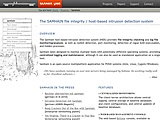 Samhain is a file integrity / intrusion detection system that can be used on single hosts as well as on networks. It been designed to monitor multiple hosts with potentially different operating systems, providing centralized logging and baseline database storage, although it can also be used as standalone application on a single host.
Samhain is a file integrity / intrusion detection system that can be used on single hosts as well as on networks. It been designed to monitor multiple hosts with potentially different operating systems, providing centralized logging and baseline database storage, although it can also be used as standalone application on a single host.
 Command the forces of "The Project" in a battle to rebuild the world after mankind has almost been destroyed by nuclear missiles. The game offers a full campaign with optional (but strongly recommended!), videos, battle against four factions, multiplayer and single-player skirmish modes, and an extensive tech tree and a full unit designer. Multiplayer is also cross-platform - battle your friends with any OS, Windows, Linux or macOS, it all works seamlessly!
Command the forces of "The Project" in a battle to rebuild the world after mankind has almost been destroyed by nuclear missiles. The game offers a full campaign with optional (but strongly recommended!), videos, battle against four factions, multiplayer and single-player skirmish modes, and an extensive tech tree and a full unit designer. Multiplayer is also cross-platform - battle your friends with any OS, Windows, Linux or macOS, it all works seamlessly!
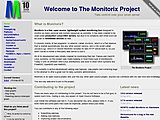 Monitorix is a free, open source, lightweight system monitoring tool designed to monitor as many services and system resources as possible. It has been created to be used under production Linux/UNIX servers, but due to its simplicity and small size can be used on embedded devices as well.
Monitorix is a free, open source, lightweight system monitoring tool designed to monitor as many services and system resources as possible. It has been created to be used under production Linux/UNIX servers, but due to its simplicity and small size can be used on embedded devices as well.
 CopyQ is clipboard manager – a desktop application which stores content of the system clipboard whenever it changes and allows to search the history and copy it back to the system clipboard or paste it directly to other applications.
CopyQ is clipboard manager – a desktop application which stores content of the system clipboard whenever it changes and allows to search the history and copy it back to the system clipboard or paste it directly to other applications.
 The OpenBSD project produces a free, multi-platform 4.4BSD-derived UNIX-like operating system. Emphasizing portability, standardization, coherency, correctness, proactive security and integrated cryptography. It comes with almost 9000 software package in its ports, including a custom X11 environment (Xenocara), desktop environments, web and multimedia applications, compilers and programming languages. It also harbours the OpenBSD-maintained software projects OpenSSH, LibreSSL, OpenIKED, OpenBGPD
The OpenBSD project produces a free, multi-platform 4.4BSD-derived UNIX-like operating system. Emphasizing portability, standardization, coherency, correctness, proactive security and integrated cryptography. It comes with almost 9000 software package in its ports, including a custom X11 environment (Xenocara), desktop environments, web and multimedia applications, compilers and programming languages. It also harbours the OpenBSD-maintained software projects OpenSSH, LibreSSL, OpenIKED, OpenBGPD
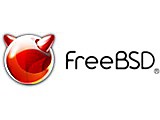 FreeBSD is an operating system and a major BSD distribution, which focuses on stability, performance, cutting-edge features and security. It's both UNIX® and Linux-compatible, ports a wide range of applications (24000), is suitable for server, embedded and desktop use. Has robust networking capabilities, cross-platform support, hardware and KMS/drm2 video drivers, hardware and network virtualization support, jails, dtrace, capsicum, understands ZFS and other filesystems, and simple installation
FreeBSD is an operating system and a major BSD distribution, which focuses on stability, performance, cutting-edge features and security. It's both UNIX® and Linux-compatible, ports a wide range of applications (24000), is suitable for server, embedded and desktop use. Has robust networking capabilities, cross-platform support, hardware and KMS/drm2 video drivers, hardware and network virtualization support, jails, dtrace, capsicum, understands ZFS and other filesystems, and simple installation
 Gross is a greylisting server. The features that make gross stand out from other greylisters are: - it's blazingly fast - it's amazingly resource efficient - it can be configured to query DNSBL databases, and enforce greylisting only for hosts that are found on those databases - it can block hosts that match multiple DNSBL's - it can be replicated and run parallel on two servers - It supports Sun Java System Messaging Server, Postfix, Sendmail and Exim.
Gross is a greylisting server. The features that make gross stand out from other greylisters are: - it's blazingly fast - it's amazingly resource efficient - it can be configured to query DNSBL databases, and enforce greylisting only for hosts that are found on those databases - it can block hosts that match multiple DNSBL's - it can be replicated and run parallel on two servers - It supports Sun Java System Messaging Server, Postfix, Sendmail and Exim.
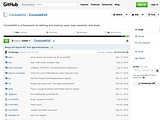 ConsoleKit2 is a continuation fork of ConsoleKit for managing user sessions, logins, and tracking seats. It's an alternative to systemd-logind, and intended for XFCE as compatibility layer to run on the various BSD systems. It integrates many patches since ConsoleKit was unmaintained, utilizes recent dbus, glib, X11, libkvm, PAM, udev, inotify and pm-utils bindings.
ConsoleKit2 is a continuation fork of ConsoleKit for managing user sessions, logins, and tracking seats. It's an alternative to systemd-logind, and intended for XFCE as compatibility layer to run on the various BSD systems. It integrates many patches since ConsoleKit was unmaintained, utilizes recent dbus, glib, X11, libkvm, PAM, udev, inotify and pm-utils bindings.
 Detroit is a POSIX platform abstraction layer for creating small and portable desktop applications. Detroit offers simple widgets, even more simpler menu system and extensible DSL language in its core.
Detroit is a POSIX platform abstraction layer for creating small and portable desktop applications. Detroit offers simple widgets, even more simpler menu system and extensible DSL language in its core.
 AVFS is a system, which enables all programs to look inside gzip, tar, zip, etc. files or view remote (ftp, http, dav, etc.) files, without recompiling the programs. AVFS can be used with FUSE to enable access to archives from any application. AVFS can also be used as a stand-alone shared library if FUSE is not available or unwanted.
AVFS is a system, which enables all programs to look inside gzip, tar, zip, etc. files or view remote (ftp, http, dav, etc.) files, without recompiling the programs. AVFS can be used with FUSE to enable access to archives from any application. AVFS can also be used as a stand-alone shared library if FUSE is not available or unwanted.
 A tea timer for your system tray.
A tea timer for your system tray.
 For people who do not like classical spreadsheets, but need an office tool for tables: With Dagri you can build up tables and save data within. While a spreadsheet uses one single table layout, Dagri can use many tables with different layouts on one sheet. And it gives you more focus on your data. The intention is not another spreadsheet, but something new instead: a data grid application.
For people who do not like classical spreadsheets, but need an office tool for tables: With Dagri you can build up tables and save data within. While a spreadsheet uses one single table layout, Dagri can use many tables with different layouts on one sheet. And it gives you more focus on your data. The intention is not another spreadsheet, but something new instead: a data grid application.
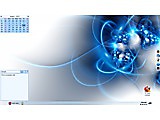 The Lumina Desktop Environment is a lightweight system interface that is designed for use on any Unix-like operating system. It takes a plugin-based approach, allowing the entire interface to be assembled/arranged by each individual user as desired, with a system-wide default layout which was setup by the system administrator.
The Lumina Desktop Environment is a lightweight system interface that is designed for use on any Unix-like operating system. It takes a plugin-based approach, allowing the entire interface to be assembled/arranged by each individual user as desired, with a system-wide default layout which was setup by the system administrator.
 This is a TCP port redirector for UNIX. It can be run under inetd or as standalone (in which case it handles multiple connections). It is 8 bit clean, not limited to line mode, is small and lightweight. If you want access control, run it under xinetd, or inetd with TCP wrappers. Redir listens for TCP connections on a given port, and, when it receives a connection, then connects to a given destination address:port, and pass data between them. It finds most of its applications in traversing firew
This is a TCP port redirector for UNIX. It can be run under inetd or as standalone (in which case it handles multiple connections). It is 8 bit clean, not limited to line mode, is small and lightweight. If you want access control, run it under xinetd, or inetd with TCP wrappers. Redir listens for TCP connections on a given port, and, when it receives a connection, then connects to a given destination address:port, and pass data between them. It finds most of its applications in traversing firew
 A tea timer for your systray.
A tea timer for your systray.
 mipsrun is an emulator that allows to run binaries for MIPS machines on *nix-like operating systems. mipsrun does not emulate the machines the binaries were meant to run on, but rather when the program asks to run a system call, mipsrun emulates the system call converting from and to the correct formats, so to the emulated application it looks like a system call in its native execution environment was executed. mipsrun is written in C++, and has been tested on Linux (i386, amd64 and PPC), NetBSD
mipsrun is an emulator that allows to run binaries for MIPS machines on *nix-like operating systems. mipsrun does not emulate the machines the binaries were meant to run on, but rather when the program asks to run a system call, mipsrun emulates the system call converting from and to the correct formats, so to the emulated application it looks like a system call in its native execution environment was executed. mipsrun is written in C++, and has been tested on Linux (i386, amd64 and PPC), NetBSD
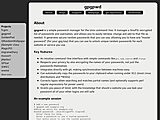 gpgpwd is a terminal-based password manager. It stores a list of passwords and their associated usernames in a GnuPG-encrypted file, and allows you to easily retrieve, change, and add to that file as needed. It also generates random passwords which you can use, easily allowing you to have one "master password" (for your gpg key), with one unique and random password for each website or service you use, ensuring that your other accounts stay safe even if one password gets leaked. gpgpwd can als
gpgpwd is a terminal-based password manager. It stores a list of passwords and their associated usernames in a GnuPG-encrypted file, and allows you to easily retrieve, change, and add to that file as needed. It also generates random passwords which you can use, easily allowing you to have one "master password" (for your gpg key), with one unique and random password for each website or service you use, ensuring that your other accounts stay safe even if one password gets leaked. gpgpwd can als
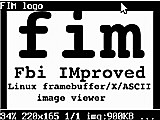 FIM is a lightweight universal image viewer, mostly for Linux. It is highly customizable and scriptable, and for users who are comfortable with software like the VIM text editor or the Mutt mail user agent. You can control it using the keyboard. FIM can open many file formats (even using converters) and it can display pictures graphically, with the Linux framebuffer or under X/Xorg, or in a terminal as ASCII Art renderings.
FIM is a lightweight universal image viewer, mostly for Linux. It is highly customizable and scriptable, and for users who are comfortable with software like the VIM text editor or the Mutt mail user agent. You can control it using the keyboard. FIM can open many file formats (even using converters) and it can display pictures graphically, with the Linux framebuffer or under X/Xorg, or in a terminal as ASCII Art renderings.
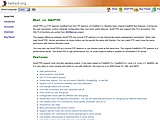 SmbFTPD is derived from the FTP daemon from FreeBSD 5.4. It keeps all original functionality, but adds more user permission control features, integrates config files, and a Samba-style share management approach with reusing SMB authorization. It supports TLS as ported from BSDftpd-ssl. But it's still pretty small (90KB), runs on x86, ARM and MIPS.
SmbFTPD is derived from the FTP daemon from FreeBSD 5.4. It keeps all original functionality, but adds more user permission control features, integrates config files, and a Samba-style share management approach with reusing SMB authorization. It supports TLS as ported from BSDftpd-ssl. But it's still pretty small (90KB), runs on x86, ARM and MIPS.
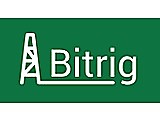 Bitrig is a OpenBSD-derived Unix distribution. It retains compatibility but modernizes a few build infrastructure dependencies and core libraries. It currently runs on amd64/x86-64 architectures, utilizes LLVM/clang 3.4 instead of GCC, libc++ instead of GNU libstdc++. Bitrig switches to FFS2 as default filesystem, supports GPT partitioning, tmpfs and tmpfsrd, thread-local storage, fair kernel mutexes as C11 atoms, UUIDs and xlocales, provides a USB boot image, a more POSIX-compliant ps(1). It co
Bitrig is a OpenBSD-derived Unix distribution. It retains compatibility but modernizes a few build infrastructure dependencies and core libraries. It currently runs on amd64/x86-64 architectures, utilizes LLVM/clang 3.4 instead of GCC, libc++ instead of GNU libstdc++. Bitrig switches to FFS2 as default filesystem, supports GPT partitioning, tmpfs and tmpfsrd, thread-local storage, fair kernel mutexes as C11 atoms, UUIDs and xlocales, provides a USB boot image, a more POSIX-compliant ps(1). It co
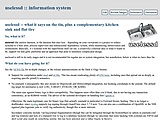 uselessd is a systemd-208 fork optimized for less resource usage, a leaner DBUS ABI, fewer dependencies and BSD/Linux cross-platform compatibility. It reduces featuritis by constraining unit types and concentrating on system initialization and process supervision. In particular udev gets extracted to support alternative handlers, binary journald logging removed to allow established syslog services for early boot sequences. Some auxiliary reimplementations like systemd-fsck are transferred back t
uselessd is a systemd-208 fork optimized for less resource usage, a leaner DBUS ABI, fewer dependencies and BSD/Linux cross-platform compatibility. It reduces featuritis by constraining unit types and concentrating on system initialization and process supervision. In particular udev gets extracted to support alternative handlers, binary journald logging removed to allow established syslog services for early boot sequences. Some auxiliary reimplementations like systemd-fsck are transferred back t
|